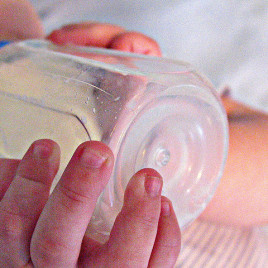Proceedings of the Royal Society B: Biological Sciences Published March 27, 2019 | 17:01 EDT (Brief from the Royal Society) Researchers modelled North American language diversity at time of European contact, using influences such as topography, rivers, climate change since the last Ice Age, precipitation, and other ecological factors, to gain insight into the factors that […]
Prepare for drought conditions in southern Canada as the Arctic warms
Nature Published March 27, 2019 | 14:00 EDT When Arctic regions warmed relative to equatorial regions beginning about 12,000 years ago, temperate regions saw substantially less rain- and snowfall, researchers say. Palaeoclimate records from the end of the last Ice Age to some 5,000 years ago and climate simulations indicate that weakening temperature gradients led to […]
March 26, 2019 | SMCC Heads Up 
Arctic warming, southern drought | What drives language dispersal | March 26, 2019 | SMCC Heads Up – Embargoed and recently published research with a Canadian focus, curated by SMCC for science journalists. Read more>
Freeze-tolerant insects draw on a range of protectant molecules 
Proceedings of the Royal Society B: Biological Sciences Published March 20, 2019 17:01 EDT (Brief from the Royal Society) Low temperatures kill most animals, but some insects can survive ice forming inside their bodies. Researchers tested how small-molecule cryoprotectants work the freeze-tolerant spring field cricket, showing that different cryoprotectants have unique impacts on freeze tolerance. The information […]
Trouble in the OR: Clinicians report assault, verbal abuse, intimidation 
Canadian Journal of Anesthesia Published March 19, 2019 21:00 EDT Canadian and U.S. clinicians experienced almost 1,000 physical assaults in operating rooms in 2012–2014. Verbal threats and other forms of intimidation occurred. Clinicians working as nurses, working in privately funded clinics, or who were young, inexperienced, female, or non-heterosexual were most likely to experience abuse. A […]

Daily use and high-potency cannabis linked to higher rates of psychosis 
The Lancet Psychiatry Published March 19, 2019 19:30 EDT (News release from The Lancet) In cities where high potency cannabis is widely available, such as London and Amsterdam, a significant proportion of new cases of psychosis are associated with daily cannabis use and high-potency cannabis. The authors estimate that one in five new cases (20.4%) of psychosis […]
March 19, 2019 | SMCC Heads Up 
Asteroid observations | Ice-resistant bugs | Young, risky sex | March 19, 2019 | SMCC Heads Up – Embargoed and recently published research with a Canadian focus, curated by SMCC for science journalists. Read more>
Why some young adults engage in unsafe sex 
Journal of Sex Research Published March 19, 2019 00:00 EDT (News release from Taylor & Francis Group) Gender, sexual orientation, and the desire to form lasting romantic relationships appear to influence sexual risk-taking among young adults. This is the first study to directly compare how heterosexual men, heterosexual women, and homosexual men differ in their approach […]
Otters leave their own archaeological records 
Scientific Reports Published March 14, 2019 14:00 EDT (News release from Nature Research Press) Sea otters leave distinct wear patterns on the rocks that they use to break open hard-shelled food. The patterns, which can be recognised using archaeological techniques, could help trace locations of previous sea otter populations that are now extinct. Images and video […]
Catastrophic dynamics limit Atlantic cod recovery 
Proceedings of the Royal Society B: Biological Sciences Published March 13, 2019 17:01 ET (Brief from the Royal Society) Researchers applied a model from catastrophe theory to Atlantic cod (Gadus morhua) stocks. The resulting patterns of restoration reflect the combined effects of fishing pressure and temperature increase that limit the species’ recovery potential. These dynamics help […]
Tool tracks gentrification across cities 
PLOS One Published March 13, 2019 (News release from PLOS) Researchers trained a computer model to search Google Street View’s images of Ottawa properties from 2007 to 2016 for changes that could indicate gentrification – for example, new fences, repainting, or new windows. The results were almost as accurate at detecting gentrification indicators as a human […]
Mapping the effects of guns, snares and bulldozers on biodiversity 
PLOS Biology Published March 12, 2019 14:00 ET (News release from PLOS) Researchers mapped the distribution of destructive human activities in locations occupied by 5,457 threatened birds, mammals and amphibians across the globe. They found 1,237 species impacted by threats to than 90 per cent of their habitat, and 395 species impacted by threats across their entire […]

Major molecular changes unfold during newborns’ first week of life 
Nature Communications Published March 12, 2019 (News release from UBC) A new technique that extracts huge amounts of data from a tiny amount of newborn blood reveals molecular changes in the first week of newborn life, including what genes are turned on, what proteins are being made, and how metabolism changes. The findings establish a common developmental […]
March 12, 2019 | SMCC Heads Up 
Newborns’ first week | Archiving otters | Gentrification sleuthing | March 12, 2019 | SMCC Heads Up – Embargoed and recently published research with a Canadian focus, curated by SMCC for science journalists. Read more>
Moralizing gods, impartiality and religious parochialism linked to greater cooperation 
Proceedings of the Royal Society B: Biological Sciences Published March 6, 2019 17:01 ET (Brief from the Royal Society) People who believe in punishing gods are more likely to cooperate with each other. Researchers administered behavioral experiments and interviewed a sample of 2,228 participants from 15 diverse populations. They found that higher ratings of gods as […]
Study confirms and quantifies Zika–microcephaly link in Brazil 
PLOS Medicine Published March 5, 2019 14:00 ET (News release from PLOS) Women infected with Zika virus early in pregnancy are almost 17 times more likely to have a child with microcephaly, abnormal smallness of the head. Researchers used national reporting databases in Brazil to assemble information on nine known or hypothesized causes of microcephaly for all […]
